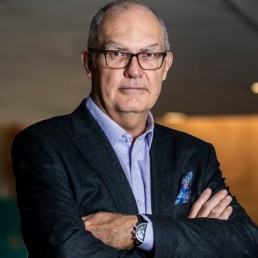From the earliest recorded history, storytelling has been used by people to educate, share and connect. Before there was writing, there were stories handed down by oral tradition, powerful enough to be shared by generations. We can be enraptured by a compelling story, well told — far more than we ever will be by hard data. In this IDC Digital Leadership Community session, we learned about the CIO’s need to be able to tell powerful stories.
Introducing the debate on their role, IDC’s Marc Dowd said CIOs had a duty of care to talk about the technology. “CIOs are going to be asked about latest technologies,” he said. “You have to be able to answer those types of queries and inform about the risks and benefits that come up.”
There’s always going to be a question about what technologies to promote and advise on. CEOs and other non-technical C-level executives will pick up snippets about various innovations, such as blockchain and AI, and will question CIOs about them.
In these cases, it’s vital to focus on what’s important to the company, said one participant. He pointed out that new technologies don’t always serve a practical purpose: “Introducing something on COBOL could be more useful than something like blockchain,” he said.
The point of technology is what you can do with it, he said. “It’s not a magic box that solves problems.”
The problem that all CIOs will face is that, while there’s a desire to look at new technologies and experiment with them, there’s always a pressing need to make sure that systems are running.
As one participant put it: “We want to look at future technologies, but the people on the ground will be saying things like ‘the printer is slow’ or ‘the WiFi is dead’ and that’s what we have to deal with.” She added that CIOs often find it hard to deal with evaluating new technologies and keeping systems running because the investment hasn’t been there in the past.
Another speaker agreed with her: “Everyone wants to talk about new tech without talking about the company’s resources; no-one’s talking about the money available.”
And that can lead to unrealistic expectations where executives want to talk about new technologies before fully understanding the old one. “We didn’t do a good job with BI and now everyone is talking about AI,” he said.
Another speaker put it clearly: “It’s all about utility service provision — there’s a black box and they expect it to work like electricity.”
In the past year, CIOs have been struggling with another issue: employees working remotely have frequently found that equipment and services in the office are lagging behind what they have in the home. It’s a sign of how things have changed. “Twenty years ago people went to work and used technology more advanced than they had at home. Now people go to work and use tech that is left behind by what they have at home,” said one participant.
There’s also the ethical question. Should CIOs be more involved in issues beyond technology? As one speaker asked: “As AI and data drive more and more around decision making, who owns the ethics of what we should or shouldn’t do?” It’s all a question of mutual trust: can users trust the CIOs to deliver the sort of technology they get from home, and can they then trust CIOs to handle the data responsibly?
And we’re back to the narrative question: who should be the one telling the stories? Is it the CIO’s job? Is it the finance director’s job? How can IT people have an influence?
One participant summed it all up: “Everyone should be able to pitch into the narrative. CIOs need to discover and listen to the stories: we need to hear the stories of the people inside and outside the organisation.”

